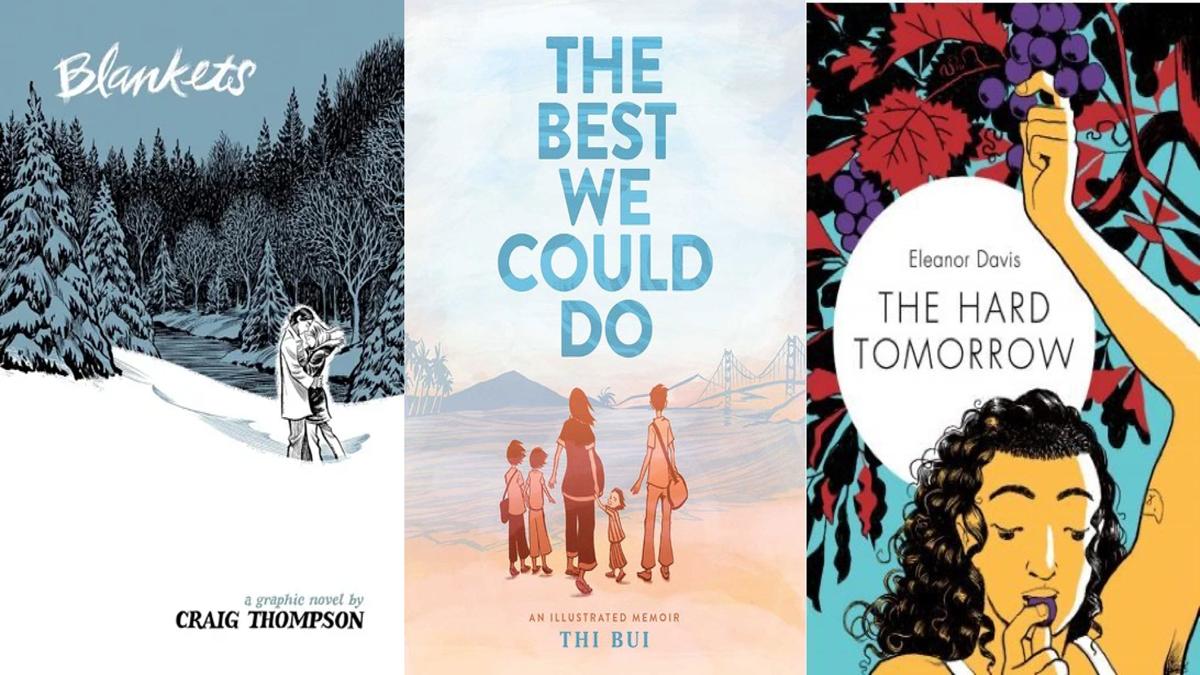
Maus. Akira. Watchmen. What do all these critically acclaimed graphic novels have in common besides their universally acknowledged greatness? None of them are on this list. Move over, Alan Moore, it’s time for a new generation of graphic artists to take a shot at the crown. The 21st century has seen a slew of beautiful new graphic novels enter literary canon, an entire generation of hungry illustrators going for glory. These are the best of the best, the cream of the crop, the most iconic of the comics – the 10 best graphic novels of the 21st century.
Blankets

A devastating graphic memoir, Craig Thompson’s Blankets feels like, to paraphrase beloved 90’s artist Seal, a soft kiss from a rose – and then a poke from the thorns. It’s a coming of age romance about Thompson’s experiences at church camp, which those of us raised religious know that that’s exactly the place where sticky adolescent entanglements happen The devout young Craig crosses paths with Raina, a fundamentalist questioning her faith. As the pair cuddle up for warmth in the Midwestern winter, the fires of their own inner turmoil ending up burning their relationship to ash. Love can be hard, young love can be harder, and squaring young love with family pressures, adolescent angst and the loss of faith? I can’t imagine anything much harder. Except for the chorus of “Kiss From A Rose,” that chorus goes hard.
Daytripper
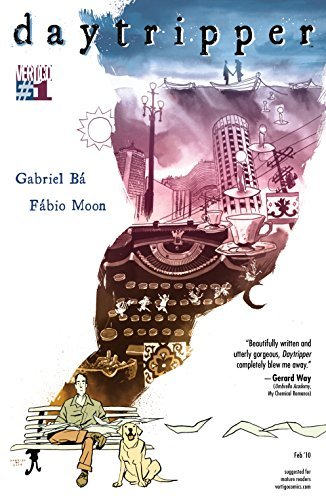
Daytripper by Fábio Moon and Gabriel Bá is the kaleidoscopic tale of one writer’s life told through his many deaths. The story revolves around Brás de Oliva Domingos, an obituary writer who dreams of becoming a big time author. Broken up into ten vignettes, the novel follows Brás through pivotal moments in his life – young love, parenthood, old age, – each of which ends in his untimely demise. It’s an exploration on all the ways Brás’ life could have ended but didn’t, played out in order to demonstrate the ultimate fragility of our existence. As Bras’ deeply relatable story sinks in, you’ll find yourself asking the same questions he does. Is my life really worth living? Am I truly happy in the present? If I died tomorrow, would I feel fulfilled? Heady questions for a comic book, but when you’re aiming to be one of the 21st century’s greatest, you gotta be prepared to ask the big ones
Nimona

The graphic novel that elevated author ND Stevenson to queer internet royalty, Nimona will go down in history as a cultural landmark. The story revolves around a titular shapeshifter ostracized from the fantasy kingdom they call home, who decides to stick it to society by devoting themself to a life of crime. Nimona’s chaotic neutral moral compass points them in the direction of Ballister Blackheart, a disgraced former hero who is attempting to get back at the government that undid him. Soon after joining Ballister’s supervillain quest for chaos, Nimona discovers that the kingdom’s higher-ups are plotting a realm-wide conspiracy, and decides to drag that secret plot kicking and screaming into the light.
My Favorite Thing Is Monsters
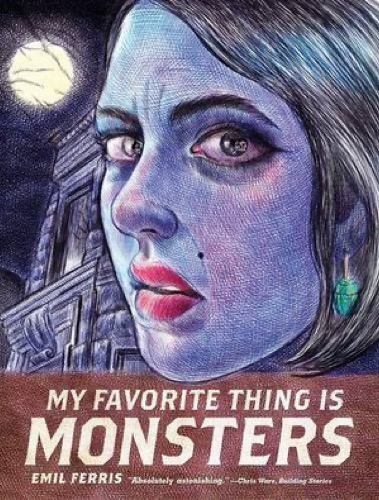
Emil Ferris’ My Favorite Thing Is Monsters is the fictional diary of Karen Reyes – a ten year old horror enthusiast. Karen experiences her first dose of real life terror after she discovers that her upstairs neighbor has been murdered. Karen takes it upon herself to untangle the twisted circumstances surrounding the death of Anka Silverberg, a holocaust survivor who fled Nazi Germany. Told through a series of interwoven plots in the present and flashbacks to a war-torn past, the novel slowly pieces together a mystery more disturbing than any of Karen’s favorite B movie slasher flicks. After all, this horror actually happened.
The Hard Tomorrow
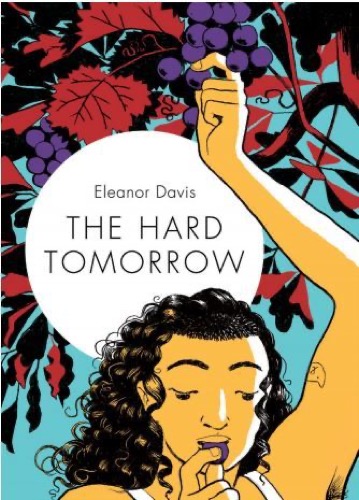
Feel like the world might end in the 21st century with the way things are going? You’re not alone. The Hard Tomorrow by Eleanor Davis is the story of a couple prepping for the apocalypse – which they believe is seriously nigh. Hannah is a healthcare worker, her husband Johnny is a stay at home stoner who’s supposed to be building them a new home for the winter. Their current home is in the back of a truck, which is hardly the place you want to want to raise a child – though they’re trying for one anyway. Aided by a queer naturalist and a conspiracy theorist, Hannah and Johnny are attempting to carve out their own little piece of the world before it goes to hell in a hand basket. They’re not trying to stop social collapse, they’ve got one foot off the grid already, and they’re just trying to take the full leap.
Jimmy Corrigan, the Smartest Kid on Earth
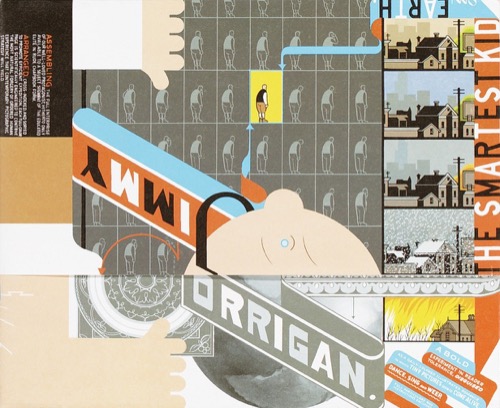
Jimmy Corrigan, the Smartest Kid on Earth by Chris Ware is, ironically, not about the smartest kid on Earth. 36 year old Jimmy Corrigan is painfully average at best, he’s a sheltered Midwesterner who lives with his overbearing mother, with little social life whatsoever. As a child, he was abandoned by his father, and decades later, his dear old dad calls him up to meet. Poor Jimmy attempts to escape his intrusive mother’s influence and reconnect with his estranged parent, but the damage has been done, and Jimmy’s painfully social awkwardness prevents him from forming genuine connections. It’s a mundane tragedy, a portrait of an empty life, but despite Jimmy’s hard circumstances and less than winning personality, you just can’t help but root for the guy. He’s a deeply sympathetic character that you want to see win, and a reminder that we all experience self doubt – the trick is not to listen to it.
Gender Queer
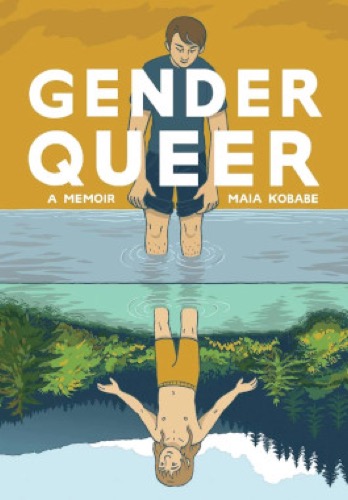
Gender Queer is the graphic memoir of Maia Kobabe, who uses e/em/eir pronouns. While Maia initially began working on this novel in order to better explain to eir loved ones what it means to be asexual and nonbinary, the book went on to becoming a coming of age bible for young queer people across the nation. As the book’s popularity grew, so did its mob of detractors – Gender Queer was the most banned book in American in 2021. Nevertheless, the book’s influence continued to soar – who doesn’t want to read a banned book, after all? Thought-provoking and utterly endearing, Gender Queer is a must read for LGBTQ+ youth, allies, and anyone who seeks to broaden their understanding of the human experience – which, hopefully someday, is everyone.
Saga

Saga by Brian K. Vaughn is the ultimate space opera. It’s got action! It’s got romance! It’s got a baby seal with an arsenal of exotic alien weaponry! The novel revolves around Alana and Marko, two aliens whose homeworlds are locked in a brutal and never-ending war. After falling in love with one another, the couple defected from the conflict with their newborn baby in tow. Seeking safety in a hostile universe, the pair are on the run from former allies hunting them down. It’s not who they are, it’s what they represent: the idea that peace and love can exist between members of two warring factions – an idea that is seriously bad for war propaganda. As Alana and Marko carve out a space for their family, they discover a found family across the stars. Romance novel writing cyclopses, ghost nannies, aforementioned baby seal warriors, each strange alien life form becomes a steadfast friend – when friends are few and enemies are many, you take who you can get.
The Best We Could Do
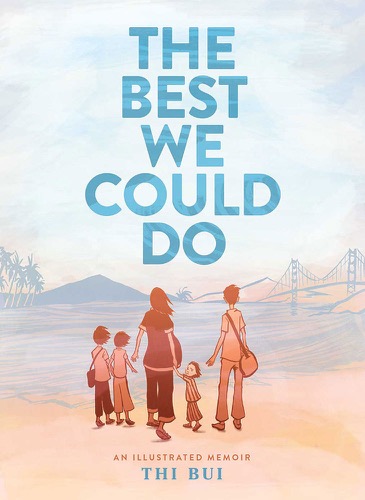
The Best We Could Do by Thi Bui is a graphic memoir of the author’s life as a Vietnamese immigrant, who fled from her war-ravaged home along with her family in the 1970s. After the fall of South Vietnam, Thi Bui and her loved ones made the journey to America, only to discover more hardships waiting for them on the distant shore. It’s an account of the human cost of war, and the lengths that humans will go to protect the ones that they love. While literature on the Vietnam War abounds on library shelves, it’s rare to read an account of the conflict from a Vietnamese perspective. To see that perspective rendered through hauntingly gorgeous illustrations stirs the reader at the very soul.
Fun Home
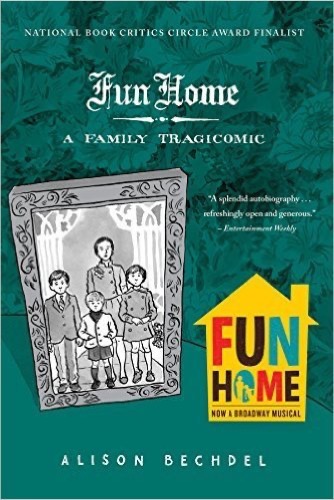
Before it was a hit Broadway musical, Alison Bechdel’s Fun Home was an acclaimed graphic novel. It’s the author’s account of her relationship with her father Bruce, an English teacher and funeral director. Not long after Alison came out as a lesbian, Bruce revealed that he was gay, and he had been living in the closet for most of his life. A few weeks after this revelation, Bruce passed away due to apparent suicide. Left with nothing but her father’s memory, Alison was left to piece together the remnants of his life to get a full understanding of the man she grew up with – a man whose cold and distant demeanor served as a cover for an incendiary secret self. Devastating and devastatingly funny, Fun Home is a tragicomic exploration of one women’s relationship with her dad – a relationship weighed down with grief, misunderstanding, resentment, and at the heart of it all, aching love.
Have a tip we should know? [email protected]







